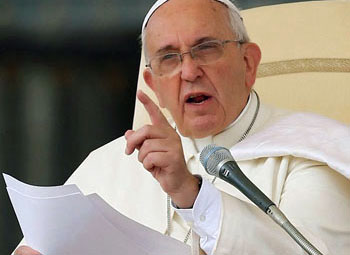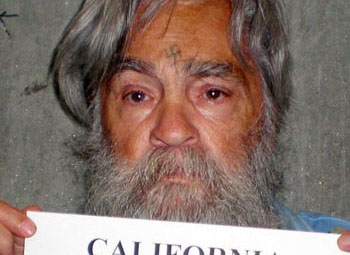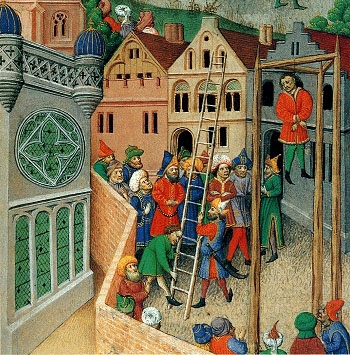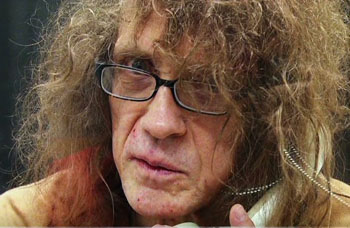Social-Political Issues
 |
 |
 |
 |
 |
 |
 |
Francis Condemns Death Penalty
& Life Sentences
In a speech to a delegation of the International Association of Penal Law on October 23, 2014, Pope Francis criticized not only capital punishment but also life sentences. He branded life-long prison terms “a hidden death sentence” in an attack on “penal populism” that included severe criticism of countries that facilitate torture.
 In a wide-ranging speech to that delegation the Pontiff said believers should oppose life-long incarceration as strongly as the use of capital punishment. Pretending that capital punishment is a sin, he asserted: “It is inconceivable that States today have no other means but the death penalty to defend people’s lives for unjust aggressors.”
In a wide-ranging speech to that delegation the Pontiff said believers should oppose life-long incarceration as strongly as the use of capital punishment. Pretending that capital punishment is a sin, he asserted: “It is inconceivable that States today have no other means but the death penalty to defend people’s lives for unjust aggressors.”
He continued: “All Christians and men of good faith are, therefore, called upon today to fight, not only for the abolition of the death penalty – whether it is legal or illegal and in all its forms – but also to improve the conditions of incarceration to ensure that the human dignity of those deprived of their freedom is respected.
“And this, for me, is linked to life sentences. For a short time now, these no longer exist in the Vatican penal code. A sentence of life (without parole) is a hidden death penalty.”
He also said maximum security prisons can be a form of torture, since their “principal characteristic is none other than external isolation,” which can lead to “psychic and physical sufferings such as paranoia, anxiety, depression and weight loss and significantly increase the chance of suicide.”
 Further, “criminal penalties should not apply to children and should be waived or limited for the elderly, who on the basis of their errors can offer lessons to the rest of society…”
Further, “criminal penalties should not apply to children and should be waived or limited for the elderly, who on the basis of their errors can offer lessons to the rest of society…”
These comments confirm Francis as liberal not only in the religious terrain, but also the most progressivist Pope to date in the social sphere.
Francis also criticized the European countries which have facilitated US demands for extraordinary rendition of terror suspects to detention centers in parts of the world where they can be tortured with impunity.
“These abuses will only stop if the international community firmly commits to recognizing … the principle of placing human dignity above all else,” he said.
One commenter noted: “Does this Pope have nothing else to babble about while churches are burning, Christian women are enslaved, and probably for the first time for hundreds of years crucifixion is being carried out by Muslim terrorists? He is not liberal, but infantile, irresponsible and in denial of realities…”
Catholic teaching: Capital punishment is a necessity
Contrary to these babblings, Catholic teaching consistently instructs on the State’s right to impose the death penalty and to inflict temporal and physical punishment on those who chose to do evil and have been subsequently judged.
In the Epistle to the Romans St. Paul teaches that those who do evil should fear rightful authorities:
“For princes are not a terror to the good work, but to the evil. Will thou then not be afraid of the power? Do that which is good: and thou shalt have praise from the same. For he is God's minister to thee, for good. But if thou do that which is evil, fear: for he bears not the sword in vain. For he is God's minister: an avenger to execute wrath upon him that does evil. Wherefore be subject of necessity, not only for wrath, but also for conscience' sake.” (13:3-5)
 From the Saints and Church Doctors, we find the same sound teaching on capital punishment. In The City of God, St. Augustine states:
From the Saints and Church Doctors, we find the same sound teaching on capital punishment. In The City of God, St. Augustine states:
"The same divine authority that forbids the killing of a human being establishes certain exceptions, as when God authorizes killing by a general law or when He gives an explicit commission to an individual for a limited time. The agent who executes the killing does not commit homicide; he is an instrument as is the sword with which he cuts. Therefore, it is in no way contrary to the commandment, 'Thou shalt not kill' to wage war at God's bidding, or for the representatives of public authority to put criminals to death, according to the law, that is, the will of the most just reason." (Book 1, chapter 21)
This same sentence is definitively taught by St. Thomas Aquinas in his Summa contra Gentiles:
"The fact that the evil ones, as long as they live, can be corrected from their errors does not prohibit that they may be justly executed, for the danger which threatens from their way of life is greater and more certain than the good which may be expected from their improvement. They also have at that critical point of death the opportunity to be converted to God through repentance. And if they are so obstinate that even at the point of death their heart does not draw back from malice, it is possible to make a quite probable judgment that they would never come away from evil.” (Summa contra Gentiles, Book III, chapter 146)
In the Summa Theologica St. Thomas instructs:
"Death inflicted as a punishment for crimes takes away the whole punishment due for those crimes in the next life, or at least part of that punishment, according to the quantities of guilt, resignation and contrition; but a natural death does not." (Summa Theologica, Index, mors).
The Council of Trent & previous Popes
The Catechism of the Council of Trent is categorical in its teaching that capital punishment is a legitimate means for the State to maintain the common good:
“The power of life and death is permitted to certain civil magistrates because theirs is the responsibility under law to punish the guilty and protect the innocent. Far from being guilty of breaking this commandment [Thou shall not kill], such an execution of justice is precisely an act of obedience to it. For the purpose of the law is to protect and foster human life. This purpose is fulfilled when the legitimate authority of the State is exercised by taking the guilty lives of those who have taken innocent lives.” (Part III, 5, n. 4).
Three Popes from three different eras also spoke positively about the right and need of the State to punish criminals:
 Innocent I: "It must be remembered that power was granted by God [to the magistrates], and to avenge crime by the sword was permitted. He who carries out this vengeance is God’s minister (Rom 13:1-4). Why should we condemn a practice that all hold to be permitted by God? We uphold, therefore, what has been observed until now, in order not to alter the discipline and so that we may not appear to act contrary to God’s authority." (Epist. 6, C. 3. 8, ad Exsuperium, Episcopum Tolosanum, February 20, 405, PL 20,495)
Innocent I: "It must be remembered that power was granted by God [to the magistrates], and to avenge crime by the sword was permitted. He who carries out this vengeance is God’s minister (Rom 13:1-4). Why should we condemn a practice that all hold to be permitted by God? We uphold, therefore, what has been observed until now, in order not to alter the discipline and so that we may not appear to act contrary to God’s authority." (Epist. 6, C. 3. 8, ad Exsuperium, Episcopum Tolosanum, February 20, 405, PL 20,495)
Innocent III: "The secular power can without mortal sin carry out a sentence of death, provided it proceeds in imposing the penalty not from hatred but with judgment, not carelessly but with due solicitude." (DS 795/425)
Pius XII: "Even in the case of the death penalty the State does not dispose of the individual’s right to life. Rather public authority limits itself to depriving the offender of the good of life in expiation for his guilt, after he, through his crime, deprived himself of his own right to life." (Address to the First International Congress of Histopathology of the Nervous System, 14 September 1952, XIV, 328)
The conclusion, therefore, could not be clearer: Pope Francis’ claims about the death penalty and life sentences are in total disagreement with the previous doctrine of the Catholic Church.


The smilling Francis becomes stern to condemn capital punishment and life sentences
He continued: “All Christians and men of good faith are, therefore, called upon today to fight, not only for the abolition of the death penalty – whether it is legal or illegal and in all its forms – but also to improve the conditions of incarceration to ensure that the human dignity of those deprived of their freedom is respected.
“And this, for me, is linked to life sentences. For a short time now, these no longer exist in the Vatican penal code. A sentence of life (without parole) is a hidden death penalty.”
He also said maximum security prisons can be a form of torture, since their “principal characteristic is none other than external isolation,” which can lead to “psychic and physical sufferings such as paranoia, anxiety, depression and weight loss and significantly increase the chance of suicide.”

According to Francis, Charles Manson's life sentence is not merciful...
These comments confirm Francis as liberal not only in the religious terrain, but also the most progressivist Pope to date in the social sphere.
Francis also criticized the European countries which have facilitated US demands for extraordinary rendition of terror suspects to detention centers in parts of the world where they can be tortured with impunity.
“These abuses will only stop if the international community firmly commits to recognizing … the principle of placing human dignity above all else,” he said.
One commenter noted: “Does this Pope have nothing else to babble about while churches are burning, Christian women are enslaved, and probably for the first time for hundreds of years crucifixion is being carried out by Muslim terrorists? He is not liberal, but infantile, irresponsible and in denial of realities…”
Catholic teaching: Capital punishment is a necessity
Contrary to these babblings, Catholic teaching consistently instructs on the State’s right to impose the death penalty and to inflict temporal and physical punishment on those who chose to do evil and have been subsequently judged.
In the Epistle to the Romans St. Paul teaches that those who do evil should fear rightful authorities:
“For princes are not a terror to the good work, but to the evil. Will thou then not be afraid of the power? Do that which is good: and thou shalt have praise from the same. For he is God's minister to thee, for good. But if thou do that which is evil, fear: for he bears not the sword in vain. For he is God's minister: an avenger to execute wrath upon him that does evil. Wherefore be subject of necessity, not only for wrath, but also for conscience' sake.” (13:3-5)

Public punishment was healthy for the society, teaching justice and discouraging crime
"The same divine authority that forbids the killing of a human being establishes certain exceptions, as when God authorizes killing by a general law or when He gives an explicit commission to an individual for a limited time. The agent who executes the killing does not commit homicide; he is an instrument as is the sword with which he cuts. Therefore, it is in no way contrary to the commandment, 'Thou shalt not kill' to wage war at God's bidding, or for the representatives of public authority to put criminals to death, according to the law, that is, the will of the most just reason." (Book 1, chapter 21)
This same sentence is definitively taught by St. Thomas Aquinas in his Summa contra Gentiles:
"The fact that the evil ones, as long as they live, can be corrected from their errors does not prohibit that they may be justly executed, for the danger which threatens from their way of life is greater and more certain than the good which may be expected from their improvement. They also have at that critical point of death the opportunity to be converted to God through repentance. And if they are so obstinate that even at the point of death their heart does not draw back from malice, it is possible to make a quite probable judgment that they would never come away from evil.” (Summa contra Gentiles, Book III, chapter 146)
In the Summa Theologica St. Thomas instructs:
"Death inflicted as a punishment for crimes takes away the whole punishment due for those crimes in the next life, or at least part of that punishment, according to the quantities of guilt, resignation and contrition; but a natural death does not." (Summa Theologica, Index, mors).
The Council of Trent & previous Popes
The Catechism of the Council of Trent is categorical in its teaching that capital punishment is a legitimate means for the State to maintain the common good:
“The power of life and death is permitted to certain civil magistrates because theirs is the responsibility under law to punish the guilty and protect the innocent. Far from being guilty of breaking this commandment [Thou shall not kill], such an execution of justice is precisely an act of obedience to it. For the purpose of the law is to protect and foster human life. This purpose is fulfilled when the legitimate authority of the State is exercised by taking the guilty lives of those who have taken innocent lives.” (Part III, 5, n. 4).
Three Popes from three different eras also spoke positively about the right and need of the State to punish criminals:

Joseph Paul Franklin received the death penalty for murdering 22 persons, 2 of them children. Unjust?
Innocent III: "The secular power can without mortal sin carry out a sentence of death, provided it proceeds in imposing the penalty not from hatred but with judgment, not carelessly but with due solicitude." (DS 795/425)
Pius XII: "Even in the case of the death penalty the State does not dispose of the individual’s right to life. Rather public authority limits itself to depriving the offender of the good of life in expiation for his guilt, after he, through his crime, deprived himself of his own right to life." (Address to the First International Congress of Histopathology of the Nervous System, 14 September 1952, XIV, 328)
The conclusion, therefore, could not be clearer: Pope Francis’ claims about the death penalty and life sentences are in total disagreement with the previous doctrine of the Catholic Church.

Posted November 3, 2014
______________________
______________________











